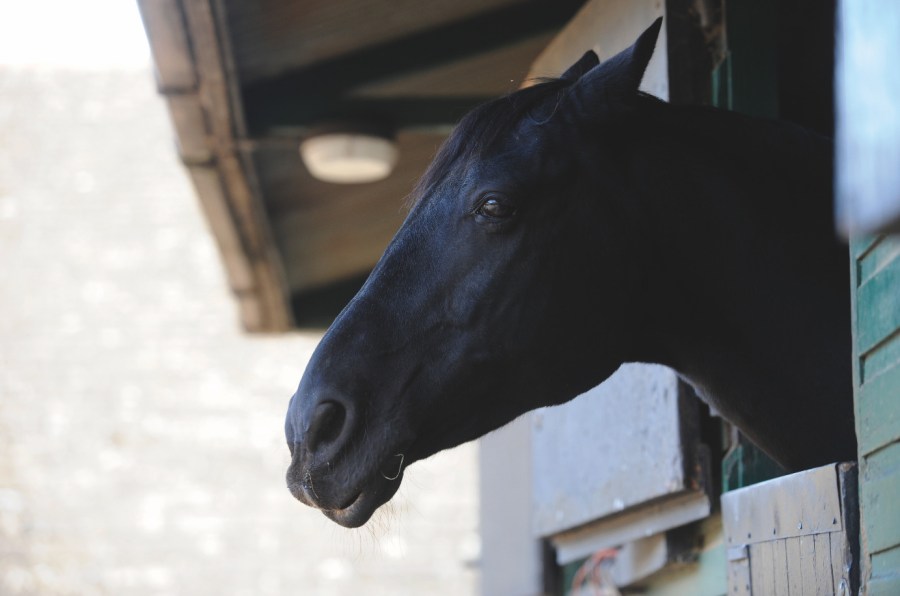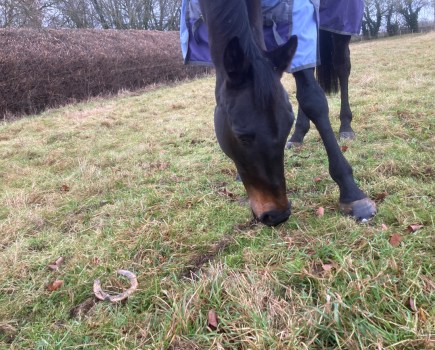Colic is one of the most common and well-known conditions that a horse can suffer from, as vet Holly Grantham BVetMed CertAVP (Equine Medicine) MRCVS from Tower Equine’s Vet Clinic explains.
What is colic?
Colic, put simply, is a sign of a larger problem that’s causing your horse abdominal pain. The condition can develop from gas distension, intestinal blockages, colon torsion, small intestinal twists, grass sickness or even liver disease. It can be mild to serious depending on what’s causing it.
One of the most serious causes of colic is a ‘twisted gut’, when the small intestine, which is very mobile, twists around itself (or a fatty lump, also known as a lipoma, in the stomach or small colon).
When it twists, fluid builds up and the blood supply is cut off, which leaves your horse in a lot of pain. This lack of blood supply to the intestinal area can also cause sections of the gut to die off. Dead intestines can fester and potentially make your horse very ill.
Impact is another cause of colic. This is a build-up of faeces within the large intestine and is similar to constipation. This often develops if there’s been a build-up of dry, indigestible forage. Grass sickness can also cause colic to develop, as it slows down the movement of food through the intestines which can lead to large volumes of fluid or blockages to build up inside the colon.
What are the clinical signs?
Colic feels like an irritation in the stomach, which is why horses may try to get rid of the discomfort by kicking at their abdomen or rolling.
Other clinical signs include:
- Turning around to look at their flanks
- Sweating
- Rolling
- Getting up and down
- Curling their lip
- Rapid breathing
- Acting off colour
- Generally looking lethargic
How is it diagnosed?
Call your vet straight away if you suspect your horse has colic.
A sudden period of box rest may trigger impaction colic, for example, so give your vet the horse’s background history when he arrives so he or she knows the medical history. That way they can see if there are any influencing factors.
Your vet will conduct a full body examination and use a stethoscope to listen to the sounds of your horse’s gut. They may perform a rectal examination or place a tube up your horse’s nose, into his stomach.
Often vets will use your horse’s response to pain relief to help them reach a diagnosis. If your horse responds well to simple pain relief such as phenylbutazone (bute) or buscopan, it may indicate a simple colic condition such as a spasmodic colic or an impaction, which can usually be managed at home with the right medication.
With the more serious cases of colic, such as small intestinal strangulations, colon torsion or grass sickness, your horse may require hospitalisation and surgery.
How is colic treated and managed?
If the painkillers are effective, your vet will advise you not to give your horse any food for a few hours, to exercise him to help move things along, and to make sure he has access to water. You’ll need to carefully monitor your horse from this stage.
Simple episodes may resolve within a few hours, whereas an impaction may take a few days. Any horse undergoing colic surgery may take weeks to recover.
Preventing colic is tricky. Often, it’s simple changes in his routine and diet that can upset a horse’s digestion. Try to make any changes slowly, including any introduction onto a lush, or very poor sandy pasture. It’s also important to worm regularly, as worms can cause gut damage or blockages.
Meet the expert: Holly Grantham BVetMed CertAVP (Equine Medicine) MRCVS is a director at Tower Equine Vet Clinic. She is an accredited Racecourse Veterinary Surgeon and an FEI treating vet.









